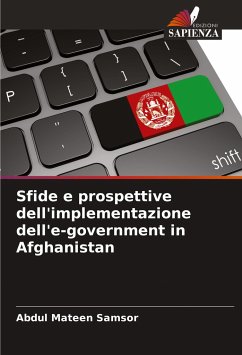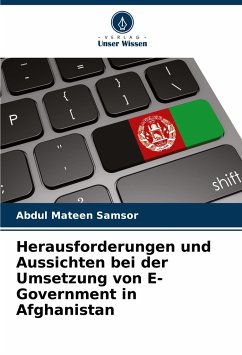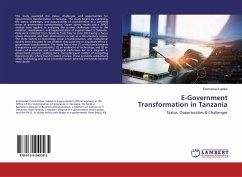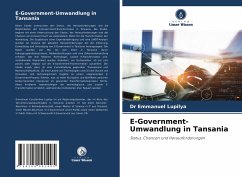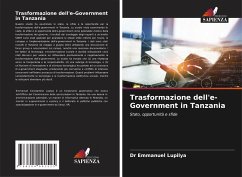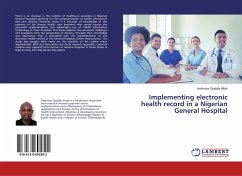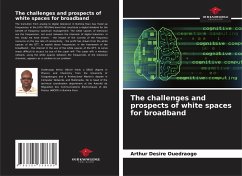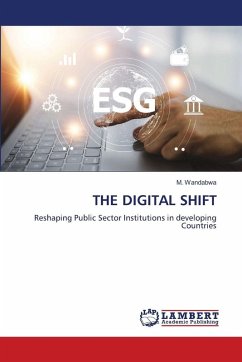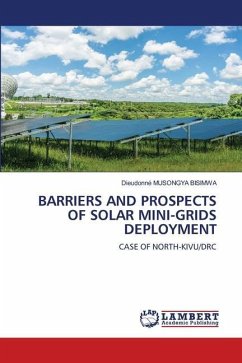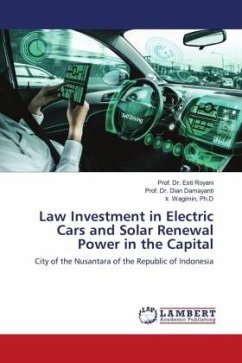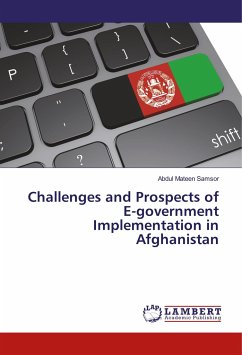
Challenges and Prospects of E-government Implementation in Afghanistan
Versandkostenfrei!
Versandfertig in 6-10 Tagen
19,99 €
inkl. MwSt.

PAYBACK Punkte
10 °P sammeln!
The aim of the study is to identify the challenges and barriers to E-government implementation in post conflict and developing countries, related to organizational, ICT and social obstacles-that are common in developing countries like Afghanistan. E-government is an important part of today's world, providing convenient access to different services that enable citizens, governments and the international community to communicate easily and quickly. This research study investigates the E-government implementation challenges in developing countries, particularly Afghanistan. The proposed investiga...
The aim of the study is to identify the challenges and barriers to E-government implementation in post conflict and developing countries, related to organizational, ICT and social obstacles-that are common in developing countries like Afghanistan. E-government is an important part of today's world, providing convenient access to different services that enable citizens, governments and the international community to communicate easily and quickly. This research study investigates the E-government implementation challenges in developing countries, particularly Afghanistan. The proposed investigatory framework focuses on ICT literacy, infrastructure conditions, degree of digital divide, sensitivity to data privacy and security, legislative priorities, private sector ICT culture, access to investment capital, E-government awareness, intra-governmental information sharing, ICT leadership, institutional resistance to change, and stakeholder involvement as discussed in relevant literature. Additional data, acquired through a quantitative survey and interviews conducted in Afghanistan as part of a study of E-government, also helps inform this analysis.



